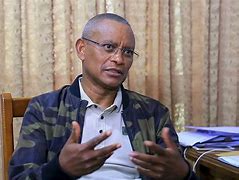
With talks under way in South Africa to end the two-year Tigray civil war in Ethiopia, there are calls for social media platforms to control hate speech that could stir tempers between the two warring parties.
Since the beginning of hostilities in November 2020, social media, mostly Twitter, has become a battleground to control the narrative. On one side, there is the Ethiopian government and its supporters, and on the other, there are Tigrayan activists and supporters.
Both sides have attempted to present their version of the story to English-speaking audiences. In most cases, hate speech is used, and those targeted are civilians.
In a statement, the United States Holocaust Memorial Museum called on social media companies to work towards aiding the multi-pronged approach to bring about peace in Ethiopia. Every effort needs to be made to reduce the capacity of, and impose costs on, those who commit mass atrocities. This includes social media companies, who must stop incitement to violence and the demonisation of communities on their platforms.
In its report Duelling Information Campaigns: The War Over the Narrative in Tigray, The Media Manipulation Casebook, a research institute on media content noted that fake news functioned as a type of political bogeyman, allowing people to dismiss substantiated reports of atrocities committed against Tigrayans as fabricated or overblown.
While Ethiopia cut communication into Tigray, which disrupted regular internet-related business, Tigrayans in the diaspora became sources of most information that trickled out.
At the beginning of the hostilities, Tigrayan activists took to Twitter and formed an advocacy group called “Stand with Tigray”.
Simultaneously, pro-government organisations, such as Ethiopia State of Emergency Fact Check, attempted to counter what they perceived as disinformation by the Tigray People’s Liberation Front and were frequently seeking to discredit foreign and local coverage.
As such, both parties in the conflict are at the centre of disinformation and misinformation, that play a big role in the conflict. Even in the run-up to the peace talks in South Africa, both parties’ communication arms issued statements discrediting the other.
Naomi Kikoler, director of the United States Holocaust Memorial Museum’s Simon-Skjodt Centre for the Prevention of Genocide, said while talks were ongoing, the world should not forget that atrocities were still continuing.
“News of the peace talks is a positive step, but it is critical to recall that mass atrocities often continue to be perpetrated while negotiations are ongoing. Similarly, there is often a failure to recognise that the invocation of fighting a civil war used by actors to hide persecutory intentions and actions,” she said.
The talks end on October 30. There are hopes that by then, there would have been movement towards lasting peace.
- A Tell report











